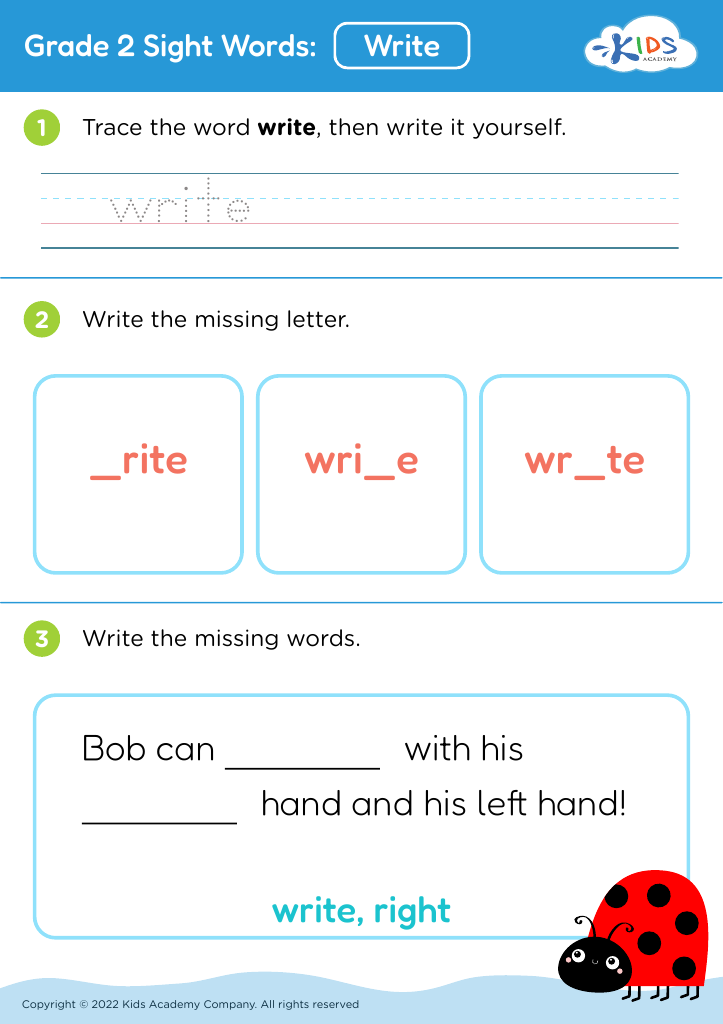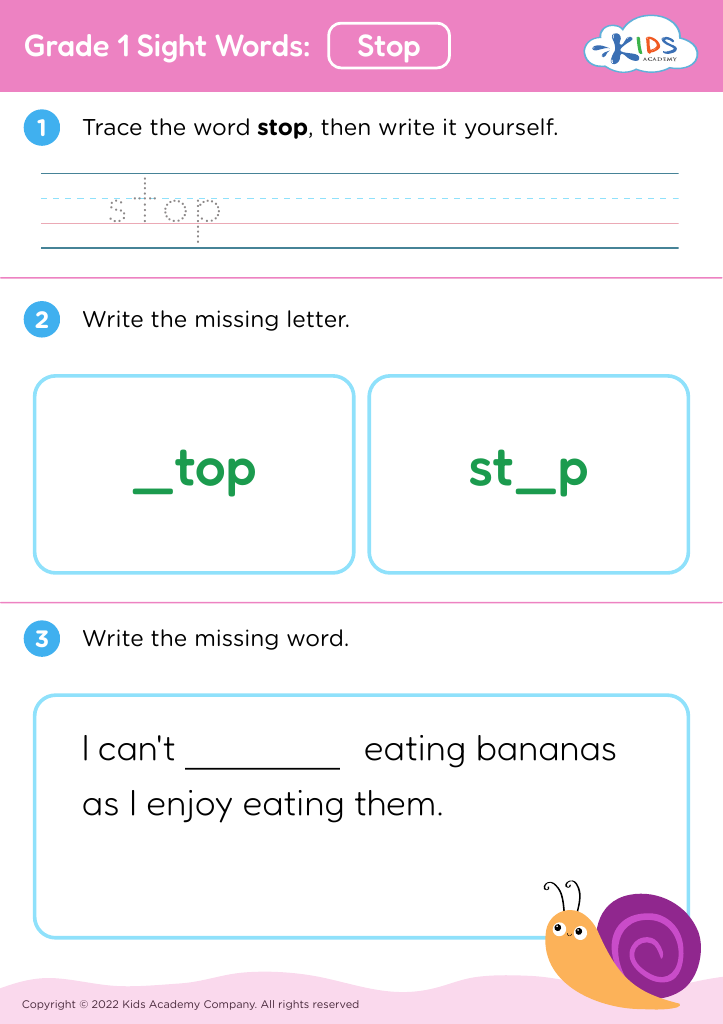Basic Addition Skills Building Vocabulary Worksheets for Ages 7-9
4 filtered results
-
From - To
Boost your child's math confidence with our "Basic Addition Skills Building Vocabulary Worksheets for Ages 7-9". Designed to integrate foundational math practice with essential vocabulary, these worksheets transform learning into a delightful experience. Each page combines engaging activities that challenge young minds to add single and multi-digit numbers while building a robust math-related vocabulary. By fostering an interactive and fun learning environment, our worksheets help students enhance basic addition skills and language comprehension simultaneously. Perfect for classroom or home use, these tools support educators and parents in cultivating strong arithmetic and linguistic abilities in children.
Parents and teachers should prioritize building a strong vocabulary for basic addition skills in children aged 7-9 because it lays a crucial foundation for their overall mathematical understanding and confidence. This age group is at a critical stage in developing cognitive skills and grasping fundamental concepts that form the building blocks for more advanced math. When children clearly understand and articulate terms like 'sum,' 'addend,' and 'equals,' they can better interpret and solve math problems.
Effective communication of mathematical ideas steps to future academic success, making subjects like algebra and geometry less intimidating. Furthermore, a strong vocabulary helps kids engage in classroom activities, peer discussions, and formative assessments more effectively, enhancing their learning experience.
Strengthening addition vocabulary also supports cognitive development. As children make connections between words and mathematical operations, they bolster their problem-solving skills and logical thinking. This dual benefit transcends math, aiding in overall literacy and critical thinking abilities.
Ultimately, prioritizing basic addition vocabulary ensures students do not fall behind and promotes a positive attitude towards math, encouraging long-term academic growth and lifelong learning skills. Elterns and teachers alike can nurture a child's educational journey by delivering these fundamental tools early on.

































